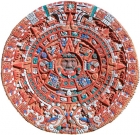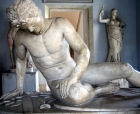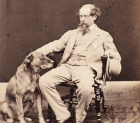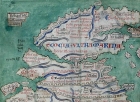Chronological Understanding
Sequencing, events, stories, pictures and periods over time to show how different times relate to each other and contribute to a coherent understanding of the past. You don’t have to teach topics in chronological order but need to relate the topics you teach to their chronological context.
Sort by:
Date (Newest first) | Title A-Z
Show:
All |
Articles |
Podcasts |
Multipage Articles
-

'Doing Local History' through maps and drama
ArticleClick to view -

A View from the Classroom - Chronology
ArticleClick to view -

A Vision of Britain Through Time
ArticleClick to view -

A creative Egyptian project
ArticleClick to view -

A cultural legacy: the theatre of ancient Greece
ArticleClick to view -

A history of the world - 100 objects that tell a story
ArticleClick to view -

Ancient Sumer
ArticleClick to view -

Ancient Sumer: the cradle of civilisation
ArticleClick to view -

Ankhu and Nebu of Deir el Medina
ArticleClick to view -

Assessment and Progression without levels
ArticleClick to view -

Back to basics: How might we organise historical knowledge?
ArticleClick to view -

Battersea: here for every dog and cat – 165 years and still going strong
ArticleClick to view -

Britain from the Iron Age to Robin Hood
ArticleClick to view -

Britain's settlement by Anglo-Saxons and Scots
ArticleClick to view -

Case Study: Creative chronological thinking
ArticleClick to view -

Children's Thinking: Developmental psychology and history education
ArticleClick to view -

Chronology & Topics at Key Stage 2
ArticleClick to view -

Chronology - an Olympic timeline
ArticleClick to view -

Chronology and local history: Year 6
ArticleClick to view -

Chronology through ICT
ArticleClick to view

